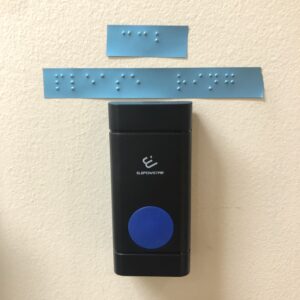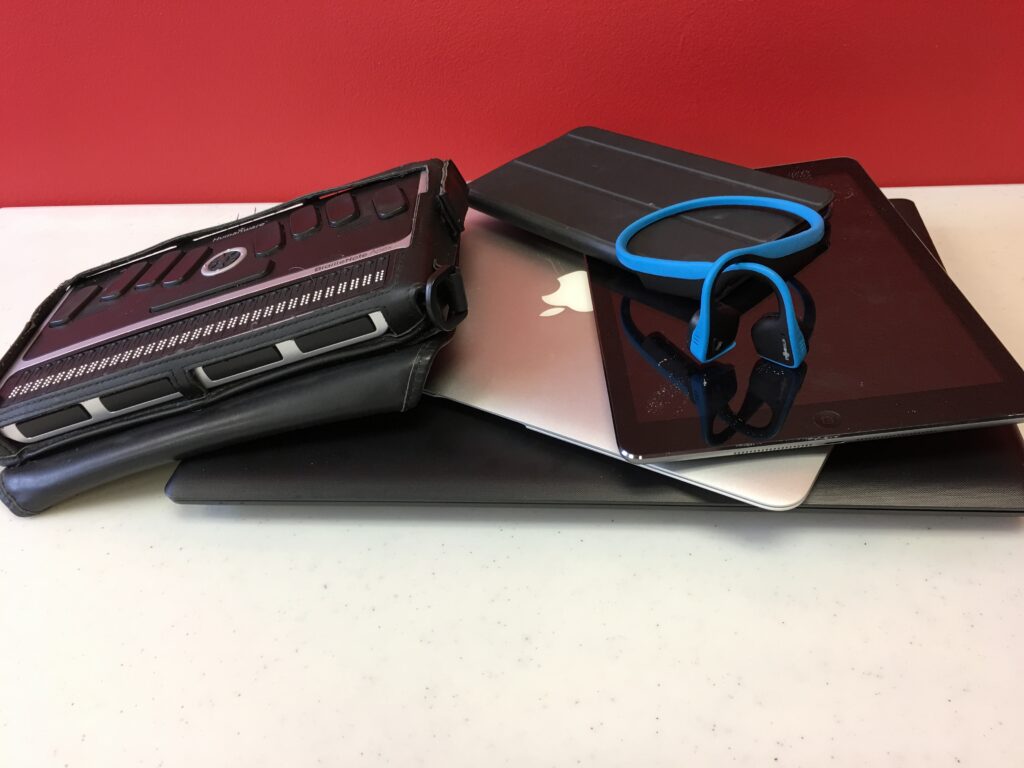Today, technology helps those who are blind/low vision to live full, independent lives.

Low Tech
- Brightly-coloured and differently-textured bands that can be used to identify bottles and jars.
- Sock sorters for laundry. Clothespins for shoes and matching gloves
- Magnets, sticky dots and puff-paint to be used to make items more tactile
- Heavily-lined note pads, thick-tipped markers and large phone books, large-print and braille greeting cards. Braille and large-print playing cards and game pieces. Braille and large-print calendars. Braille paper and labels
- Tactile measuring cups/spoons, and other kitchen gadgets
- Perkins Braillers, slates and styluses, braille label makers
- Magnifiers and lighting
- Braille books and print/braille books
- Tethers used for running
- Monocular and binocular devices for distance viewing
- White canes

High Tech
- Screen-reading/magnification software on computers and phones
- Electronic Braille displays
- Sight-enhancement glasses such as occutech, ORCAM
- Sight substitution wearables such as EnVision glasses
- Services such as Aira and BeMyEyes
- Apps created for the blind-low/vision, print-disabled community, such as Blind Square, Voice Dream Reader/Writer/Scanner, Surround Sound, Be Specular
- Reading devices, such as Victor Streams, and wayfinding devices, such as Trekkers
- Audio-described TV services such as Rogers Ignite, AMI Audio/TV, descriptive soundtracks available at movie theaters
- Audio books
- Note takers for recording on a phone, a dedicated device.
- Location devices such as Way Around tags
- Medical devices such as ScripTalk and talking health monitoring devices and apps

